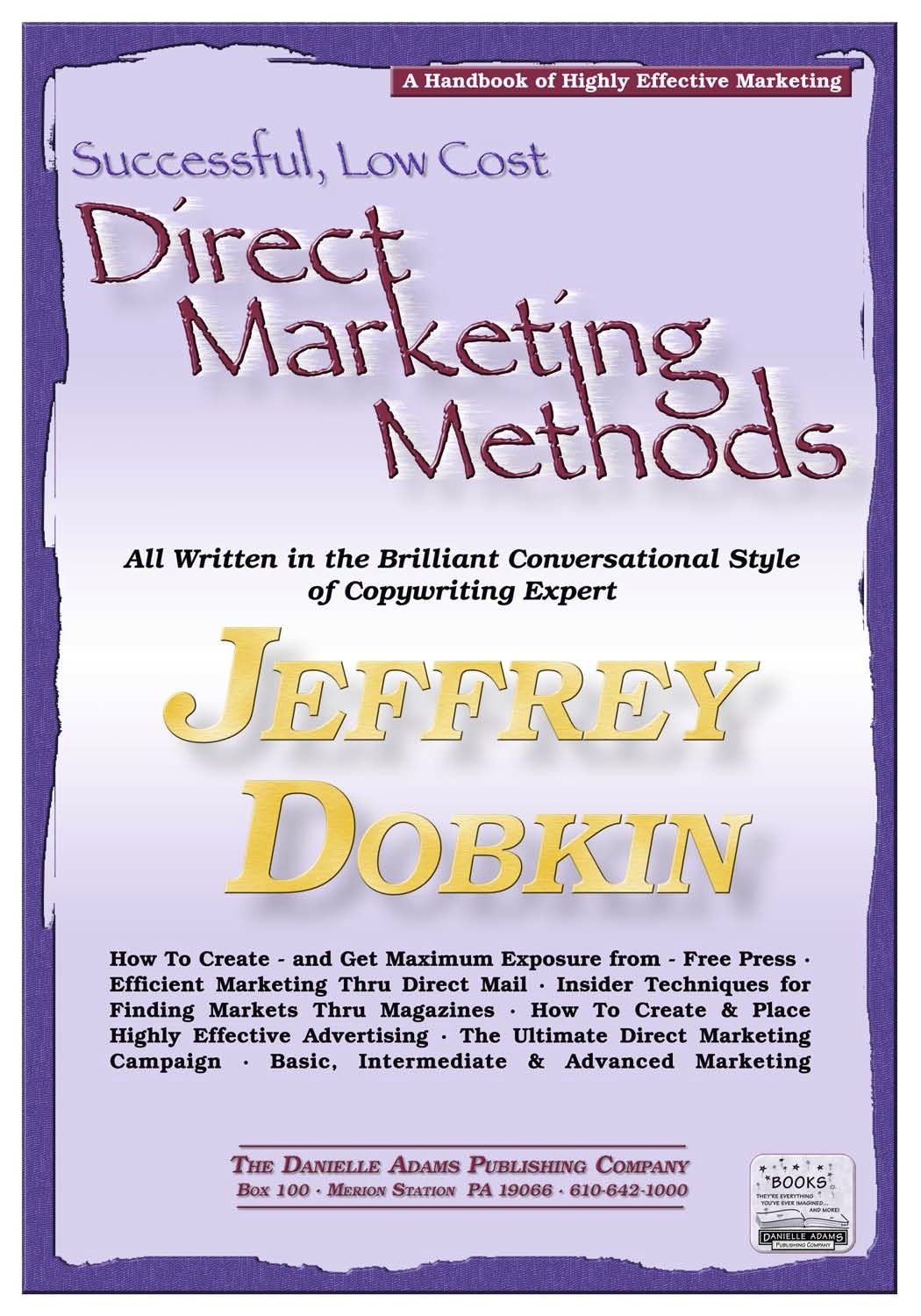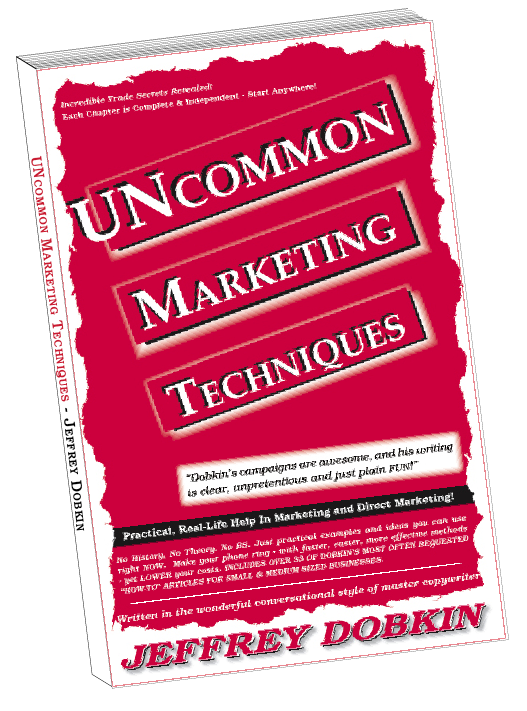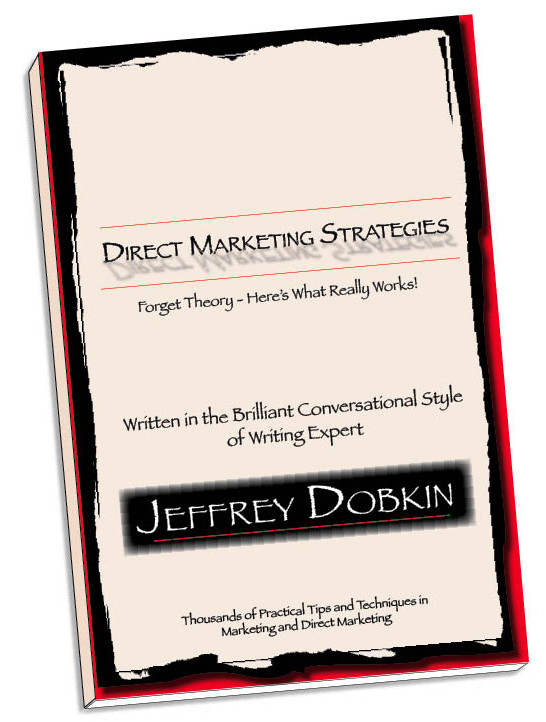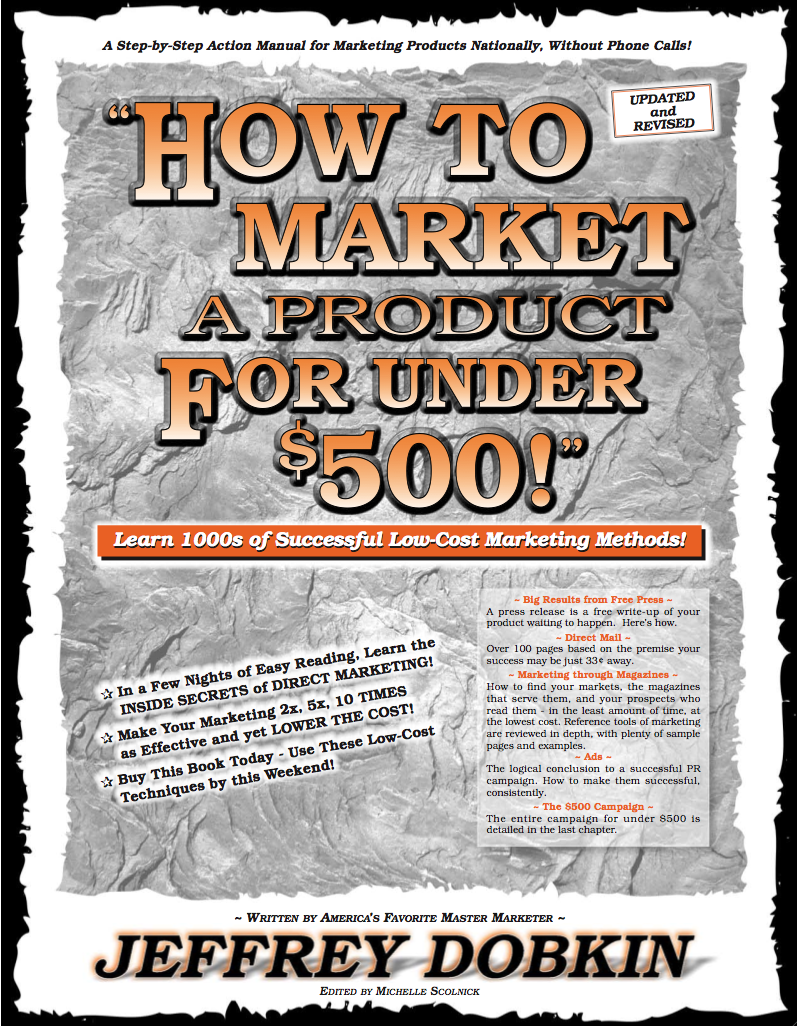Here’s why I like postcard marketing campaigns. Short crisp and to the point, direct mail postcards are one of the fastest and lowest cost ways to make your phone ring. This is the first of 4 articles by Jeffrey Dobkin on how to make your post card marketing campaign get more phone calls and generate more response.
Post cards are not necessarily good marketing tools for the straight-up, out-and-out closing of a sale. But if created correctly direct mail post cards can be great for pre-selling products and services, building brand awareness, and creating customer loyalty. And of course, I saved the best for last: post cards are the most efficient and excellent direct mail advertising vehicles for generating phone calls.

Postcard Marketing
Post cards are not necessarily good marketing tools for the straight-up, out-and-out closing of a sale. But if created correctly direct mail post cards can be great for pre-selling products and services, building brand awareness, and creating customer loyalty. And of course, I saved the best for last: post cards are the most efficient and excellent direct mail advertising vehicles for generating phone calls.
A postcard direct mail campaign can make your phone ring with maximum response when you use the right combination of compelling headlines, smooth transitions, charming copywriting, lively graphics, and an irresistible offer presented with a solid call to action.
Even further: a SERIES of direct mail post cards can generate an explosive response, build customer loyalty and stimulate brand awareness. Yet post cards remain one the easiest to manage direct mail marketing campaigns.
Even though postcards aren’t the best for closing sales – because of their short format and open architecture (no one can enclose a check to pay for an order or write a credit card number like in a direct mail letter package) response can still be quite high. Here are several of the most important goals of using post cards in any direct mail marketing campaign.
1. Generate phone calls.
The number one objective of most post card marketing campaigns is to generate a phone call. Ninety percent of the post cards I create for clients are written to fulfill this single objective: make the phone ring.
The way to make the phone ring is very straightforward in this short postcard format: offer something for FREE and ask for a phone call several times on the card.
“Call for FREE information!” Is one of my personal favorites. And the way to express this is to offer a FREE booklet of valuable information. Make the title GREAT by using the Jeff Dobkin 100 to 1 Rule, and you’ll be amazed at how many people will call to get it.
Don’t forget
“Call for a FREE review!”
“Call for free analysis.”
“Call for FREE quote.”
“Call for…” well you get the idea.
Ask readers to call you enough times in your post card copy, and they will.
Every time a reader calls, you have the opportunity to provide excellent service, and increase client loyalty and longevity.
And oh, yea… did I mention increase sales and revenue. Yea, you can do that, too. Your post card doesn’t sell, its objective is to generate a phone call. When people call, YOU make the sale. The post card generates the call, but YOU do the heavy lifting: make the sale.
With the single objective of making the phone ring, you don’t have to worry about selling anything in your post card copywriting. You just need to make the phone ring – much easier.
2. Build brand awareness.
The other 10% of the postcards I create build brand. By mailing postcards frequently, you can stay in the top of your client’s and prospect’s minds. So when your clients need anything that relates to your business – whatever you’re selling – they immediately think of you and call you first.
3. Create Instant Success.
Post cards can generate immediate response if your offer touches a timely trigger point. Figure out what your prospect’s immediate need is and address that in your card. Then, simply ask for the call.
4. Build relationships.
Sure, you can – it’s easy! But not with a single postcard. You need to create this direct mail campaign sustained over time, with a series of postcards. Mailing postcards every two weeks is ideal. Even if you did this for an entire year, the total cost would be only ($.50/card x 26 weeks =) $13 dollars for the whole year. The keys to success? Your list, relevancy, and your offer.
5. Don’t sell your product.
You don’t sell your product in your post card. The post card is too short for a lengthly product explanation and sale. What you sell in the post card is the phone call. The final objective of your post card campaign is to generate phone calls and inquiries.
Then when the person calls, YOU sell your product or service. Now… see how it’s much easier to achieve your goal (generating a phone call) with your direct mail post card than trying to get an order or sell a product. Besides, how tough is it to actually make someone to put money in an envelope and wave goodbye to it. Wow.
Postcards are easy to handle. Postcard campaigns are so much less work than other direct mail marketing campaigns which consist of mailing letters, brochures or anything that needs to be stuffed into an envelope, folded or stapled. Cost cards are so much less fuss and muss – just address and mail. Postcards are easy.
These are the “goals” and objectives of your postcard marketing campaign. The next two parts of this 4-article series on post cards continues with “12 ways to make sure your postcard campaign is successful.” Check it out! Click here to continue reading.
Then – since this post card marketing article series was originally written for an insurance magazine, the final post card marketing article shows you 15 specific offers you can make on a postcard. While these are primarily if you are in the insurance industry, most work in any industry.
Hey, if you actually are in the insurance industry, this article series is an awesome reference in marketing; but wow – get a life: insurance is pretty boring stuff.
The good news? You make a lot of money in the insurance industry if you market correctl. And you get to meet a lot of people, and you get to go on some nice travel junkets. The bad news? You go on the travel junkets with other insurance agents.
If you’re not in the insurance business, you’re probably much better off, and besides, most of these offers will still work for you anyhow. Read the complete article.
Jeffrey Dobkin will now take your questions. Call him on it: 610-642-1000 rings on his desk. Write to him at The Danielle Adams Publishing Company · Box 100 · Merion Station, PA 19066. Dobkin has written 5 books on increasing response in your direct mail and direct marketing campaigns. Titles include:



